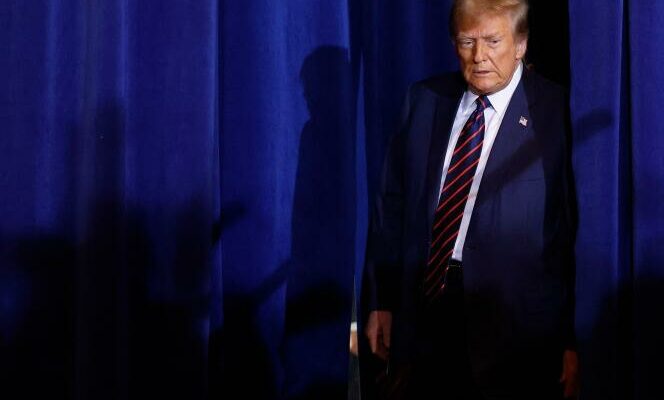Only nine months left. As the presidential election approaches, the United States remains haunted by the previous one and its dramatic consequence: the attempted coup d’état initiated by Donald Trump and those close to him, culminating on January 6, 2021 with the assault on the Capitol. In the current collision between politics and justice, the Supreme Court is poised to play a major role. She is responsible for resolving several legal controversies which all concern Donald Trump, as a candidate in the Republican primaries and a simple litigant. The nine magistrates of the Supreme Court – dominated by conservatives six to three – will assume their responsibilities at a time when their institution is itself buckling under controversy, due to proven ethical failings of several members.
In 2023, Donald Trump spent $50 million on legal fees. A simple prelude. With his cohort of lawyers and dozens of requests filed, the ex-president is following a classic strategy of obstruction and rot. He wants to prevent trials against him from taking place before the election. Indicted on 91 counts in four cases, he consolidated his electoral base by denouncing a democratic cabal. The law is slow, especially for a former president. American voters could remain uncertain about Donald Trump’s criminal guilt when they vote in November.
The first step in this Supreme Court engagement is scheduled for Thursday, February 8, with the exchange of arguments in the Colorado-Maine case. These two states decided that Donald Trump could not participate in the Republican primaries, due to his role in the January 6 insurrection and the assault by his supporters against the Capitol. A sanction “anti-democratic”, according to the brief filed by the ex-president’s lawyers, who call on the nine magistrates to “protect the rights of tens of millions of Americans who want to vote for President Trump.”
“A very complex matter”
The Supreme Court must resolve historical ambiguities here. She is invited to look at section 3 of 14e amendment to the Constitution, the basis on which the exclusion of Donald Trump in the two states, Maine and Colorado, is based. The text was adopted in 1868 after the Civil War, to prevent former Confederate soldiers and officials from holding elective office again. It provides that no person can exercise a civil or military function if they have participated in an insurrection, or provided assistance to insurgents. “This is a very complex matter.explains law professor Richard Hasen, from the University of California, who is very involved in these debates. Many legal points have never been studied by the Supreme Court. Procedurally, it is unclear who has the authority to decide on a disqualification. Finally, it is unclear whether this article applies to Trump, whether the latter was formally engaged in an insurrection, and how it is defined. »
You have 65% of this article left to read. The rest is reserved for subscribers.
